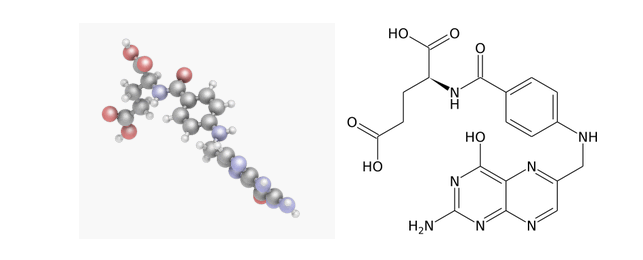Sinoright Blog
FOLIC ACID - VITAMIN B9
WHAT IS FOLIC ACID?
Folic acid is a water-soluble vitamin B9 necessary for the growth and development of the circulatory and immune systems. Almost no one currently argues that "the new is the well-forgotten old." So it happened with folic acid (synonyms: vitamin Bc, vitamin B9, vitamin M, pteroylglutamic acid, folacin, folamine, cytophol, folsan, riofolin, milafol, etc.). When in 1941 folic acid was isolated from green spinach leaves, in connection with which it got its name (from Latin. folium - "leaf"), no one could have imagined that in decades the close attention of scientists around the world would turn to this chemical compound with a very intricate name.

In humans and animals, folic acid is not synthesized, it comes from the outside along with food. Another source of folic acid is the natural intestinal microflora.
THE VALUE OF FOLIC ACID (VITAMIN B9)
The coenzyme functions of folic acid are not related to the free form of the vitamin, but to the reduced pteridine derivative. The reduction is reduced to the breaking of two double bonds and the addition of four hydrogen atoms to form tetrahydrofolic acid (THFC) and proceeds in animal tissues in two stages with the participation of specific enzymes containing reduced NADP. First, with the participation of folate reductase, dihydrofolic acid (DGFC) is formed, which, with the participation of the second enzyme, dihydrofolate reductase, is reduced to TGFC.The coenzyme functions of THFCS are directly related to the transfer of single-carbon groups, the primary sources of which in the body are derivatives of well-known amino acids (serine, glycine, methionine, choline, tryptophan, histidine), as well as formaldehyde, formic acid and methanol. Derivatives of THFK play an extremely important role in the biosynthesis of proteins and nucleic acids, therefore, deep metabolic disorders are quite understandable, often observed with folic acid deficiency.
Folic acid has acceptor properties with respect to hydrogen, which determines its participation in redox processes. folic acid takes an active part in the regulation of the functions of the hematopoietic organs, has an antianemic effect in macrocytic anemia, has a positive effect on the functions of the intestine and liver, preventing its fatty infiltration.
THE DAILY REQUIREMENT OF THE BODY FOR FOLIC ACID
Folates as a coenzyme are involved in the metabolism of nucleic and amino acids. Folate deficiency leads to disruption of nucleic acid and protein synthesis, which results in inhibition of cell growth and division, especially in rapidly proliferating tissues: bone marrow, intestinal epithelium, etc. Insufficient folate intake during pregnancy is one of the causes of prematurity, hypotrophy, congenital deformities and developmental disorders of the child. There is a pronounced relationship between the level of folate, homocysteine and the risk of cardiovascular diseases.Note: Folates are derived components from folic acid, in fact, it is the same folic acid in natural form or vitamin B9.
Folic acid dosage
Synthetic folic acid is almost completely absorbed by the body, while folate, which a person receives from foods, is absorbed by about 50%.Recommended folate intake rates:
From birth to six months: 65 mcg/day
Up to a year: 80 mcg/day
1-3 years: 150 mcg/day
4-8 years: 200 mcg/day
9-13: 300 mcg/day
From the age of 14: 400 mcg/day
Pregnant women (with an unburdened obstetric history): 400-600 mcg/day
Nursing mothers: 500 mcg /day.
Although cases of folic acid overdose are extremely rare, its excess can lead to a number of negative health consequences. The daily intake of folate should not exceed 1000 mcg / day.

The benefits of folic acid
Since its discovery, folic acid has been considered primarily a "female vitamin". It plays an important role in the maturation of eggs, normalization of the menstrual cycle, and fetal development. However, further medical research has shown that this substance has many beneficial properties for everyone.Helps to control blood sugar levels
Folic acid can reduce the likelihood of spikes in blood sugar levels and increase the sensitivity of the body's cells to insulin. A folate-rich diet can reduce the risk of diabetic complications, including neuropathy.Helps in cancer prevention
In the late 1980s, there was evidence that a diet based on foods with green leaves, rich in folate, fiber, calcium, magnesium and other nutrients, can prevent colon cancer. In those years, the concept of "folic anti-cancer diet" became popular.A diet based on a lot of foods rich in vitamins B9, B6 and B12 reduces the risk of breast cancer. Also, with the help of folate, you can slow down the process of tumor growth, if it has already appeared.
